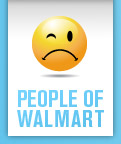Setting the blogosphere ablaze, the passing of Steve Jobs seems to have resonated Apple evangelists and many besides. As the tributes flow in, the man and his legacy are the subject of furious debate.
According to Andrew Potter, Ottawa Citizen, “for all his success as a business executive, Jobs’ most enduring legacy is not as a corporate but as a cultural visionary”. Indeed, Job’s greatest creation is arguably, neither the iPod, nor the iPad, but Apple’s brand.
Targeting the contemporary creative class, Steve Jobs has created a brand synonymous with networked independence and stylish non-conformity. Despite being a gargantuan corporation, the Apple somehow positions itself as a defiant rebel against the corporate world.
In her blog, Robyn marveled about Apple’s consumer generated marketing, made possible by devoted fans. More than its sleek design and cutting-edge technology, it is this distinctive brand identity that has inspired such fervent loyalty.
The “Get a Mac” campaign with Justin Long made pop cultural splashes quite recently, but it was the watershed “1984” commercial that best encapsulates the Apple positioning strategy.

Airing once during the Super Bowl XVIII, “1984” introduced the Apple Macintosh personal computer for the first time. Directed by Ridley Scott, the commercial’s hammer-heaving heroine was used to represent the coming of the Macintosh as a means of saving humanity from Orwell’s Big Brother, a not so subtle reference to IBM. Thanks to the Apple Computer Corporation, we are assured, the year 1984 will not be like the book 1984.
Ever since, the brand has stood as the definitive rebel sell: “the individualized resistance of political authoritarianism and cultural conformity through the adoption of non-standard consumer goods’.
Here’s to you, Steve Jobs.




